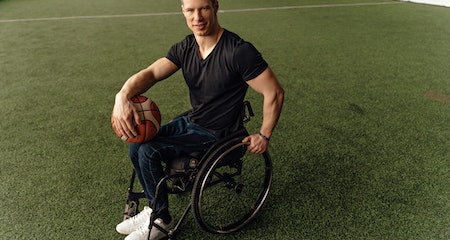There are many different types of interpreters you can use, whether you need one to interpret for a medical appointment, Court hearing or family gathering. There are many types available, including temporary interpreters as well as medical interpreters, Court interpreters, temporary interpreters, and sign language interpreters. These types can be hired for a variety purposes so it is important to hire the right type for your needs.
Medical interpreters
 It is important to have an interpreter in a medical setting in order to help patients who are hard-of-hearing or deaf get the care they need. These professionals are able to communicate medical terminology in a clear and concise manner. They are also trained in providing real-time translations of medical terminology for patients.
It is important to have an interpreter in a medical setting in order to help patients who are hard-of-hearing or deaf get the care they need. These professionals are able to communicate medical terminology in a clear and concise manner. They are also trained in providing real-time translations of medical terminology for patients.
Aside from providing an accurate translation, medical interpreters also work to promote patient understanding. They can help you understand medical terminology and explain the procedures. They can interpret for deaf people and also work with nurses to ensure they understand medical terms.
Multilingual medical interpreters may be available. In addition to English, medical interpreters may also speak Spanish or Chinese. These professionals have flexible work hours and are able work irregular hours.
Patient satisfaction can be improved by having the right type of interpreter. It can also improve patient compliance during follow-up.
For effective communication with hard of hearing and deaf patients, a good sign disability support services interpreter will be necessary. You may be able to sue your doctor if they do not offer this service.
A good interpreter can also help you get ahead in your Dandenong NDIS. Companies will pay higher salaries for interpreters who have a better education. You may also be offered the opportunity to travel.
Ask your doctor for an interpreter when scheduling an appointment. The office should have a policy for determining the needs of hard-of-hearing patients. The office should also have a way that documents the relationship with an interpreter.
You might also consider asking your pharmacy or health plan for assistance. Many people rely on written messages and assistive listening devices to communicate.
Court interpreters
No matter if you are deaf, hearing impaired or have limited English skills you can still communicate during a court case. Courts offer interpreting services in over 100 languages. A deaf person may also request additional communication methods such American Sign Language (ASL).
Courts provide interpreters to ensure all parties receive accurate, reliable communications during court proceedings. 28 U.S.C. SS1827 requires that the court provides written communication as well as oral communication. Qualified sign language interpreters must also be available for deaf individuals.
These services must be requested at least five business days in advance of your court date. The court can be reached by phone, email, and in person. You can also contact the Texas Justices of the Peace if you are deaf. They help ensure that all deaf people have equal access to the courts.
You can also request out of court communication through the Public Defender’s Office and the GAL Program or your assigned counsel. You can also contact Clerk’s office to request an interpretation.
Before you hire an interpreter, ensure that you have reviewed the file. You should not hire a friend or family member. You must check dictionaries and check for any grammatical errors. You should also be observant of the interpreter to make sure that he or she provides an accurate interpretation. You should also instruct jurors regarding their roles.
Qualified interpreters can perform at a high standard in simultaneous interpretation and sight translating. However, he/she must continue professional learning. The United States Courts Director of Administrative Office certifies interpreters.
Temporary interpreters
Getting the right sign language interpreter for your event can be a challenge. Aside from the cost, there are several factors to consider. Contacting the sponsoring organization is a good way to find out whether a sign language interpreter can be hired for your event. They can direct you to the appropriate agency.
The first step to getting a sign language interpreter is to provide your event date and location. You must ensure they have the appropriate equipment, in addition to having the right people. This could include real-time captioning displays. You can also contact the ADA Regional Center for help. Signage and signage are not enough. You might also need directions to the event venue.
The best thing about having a sign language interpreter available is that you don’t have to be the only one paying. If you are hosting a large event, you can save money by having your interpreter sign. A badge from the Arizona Commission for Deaf and Hard of Hearing can also be worn. This badge will let event organizers know that you care about the deaf and hard-of-hearing.
The most important thing to remember is that a sign language interpreter is required for two-way communication. This is especially true for those with hearing impairments. The cost of hiring an interpreter is the responsibility of the hosting organization.
The best way to get a sign language interpreter is to make a request as far in advance as possible. If you are hosting an event larger than a concert or festival, it is worth having a few available.
Sign language teachers
Students with hearing impairments can participate in education by using sign language interpreters for disabled students. It has also helped to increase awareness of the Deaf culture among those who are hearing.
Sign language teachers for disabled interpreters are a practical and affordable way to help deaf students and their families take part in the education process. Sign language interpreters for the disabled are highly qualified and knowledgeable about Deaf issues.
The National Association of the Deaf has called for more sign language teachers for disabled interpreters. Many states legislatures and school systems have answered this call. The Individuals with Disabilities Education Act, (IDEA), has strengthened mainstreaming requirements in education for students with disabilities.
The American Sign Language Teachers Association is the national professional organization that offers certification, professional development and evaluation for American Sign Language teachers. It was founded in 1975. It was previously affiliated with the National Association of Deaf Education.
ASLA members are required follow a Code of Professional Conduct. It includes a commitment to professional ethics, knowledge, and confidentiality. The National Organization of Sign Language Interpreters, (NOSLI) endorses the Code of Professional Conduct.
ASL teachers are required to have a Master of Arts degree. Most teachers have attended training programs that focus on ASL and Deaf Studies. This type of program is a requirement for any K-12 teaching ASL.
The American Sign Language Teachers Association is dedicated to ensuring that schools are accessible to students who are deaf or hard of hearing. It provides professional development for teachers and serves as a clearinghouse of information about ASL.
Financially accessible services
It is not easy to provide the most accessible services for people with disabilities. This includes everything from hiring the right janitors to ensuring that the place you happen to be is in fact an accessible place. A properly managed organization will be able to reap the benefits of the best possible employees, not to mention the plethora of patrons that will undoubtedly be attracted to the plethora of amenable amenities.
It is important to offer the best accommodation for the blind. For instance, the most enlightened of you will appreciate that the blind can access the restroom in relative comfort and privacy. A similar feat is achieved by ensuring that all persons with disabilities can access the restrooms in relative comfort and privacy. Aside from the aforementioned, this is also a great example of how the blind is a valued customer. In a nutshell, you should be able to expect that the best possible accommodations for the blind will be offered at a cost that will be fair and equitable to all parties.
